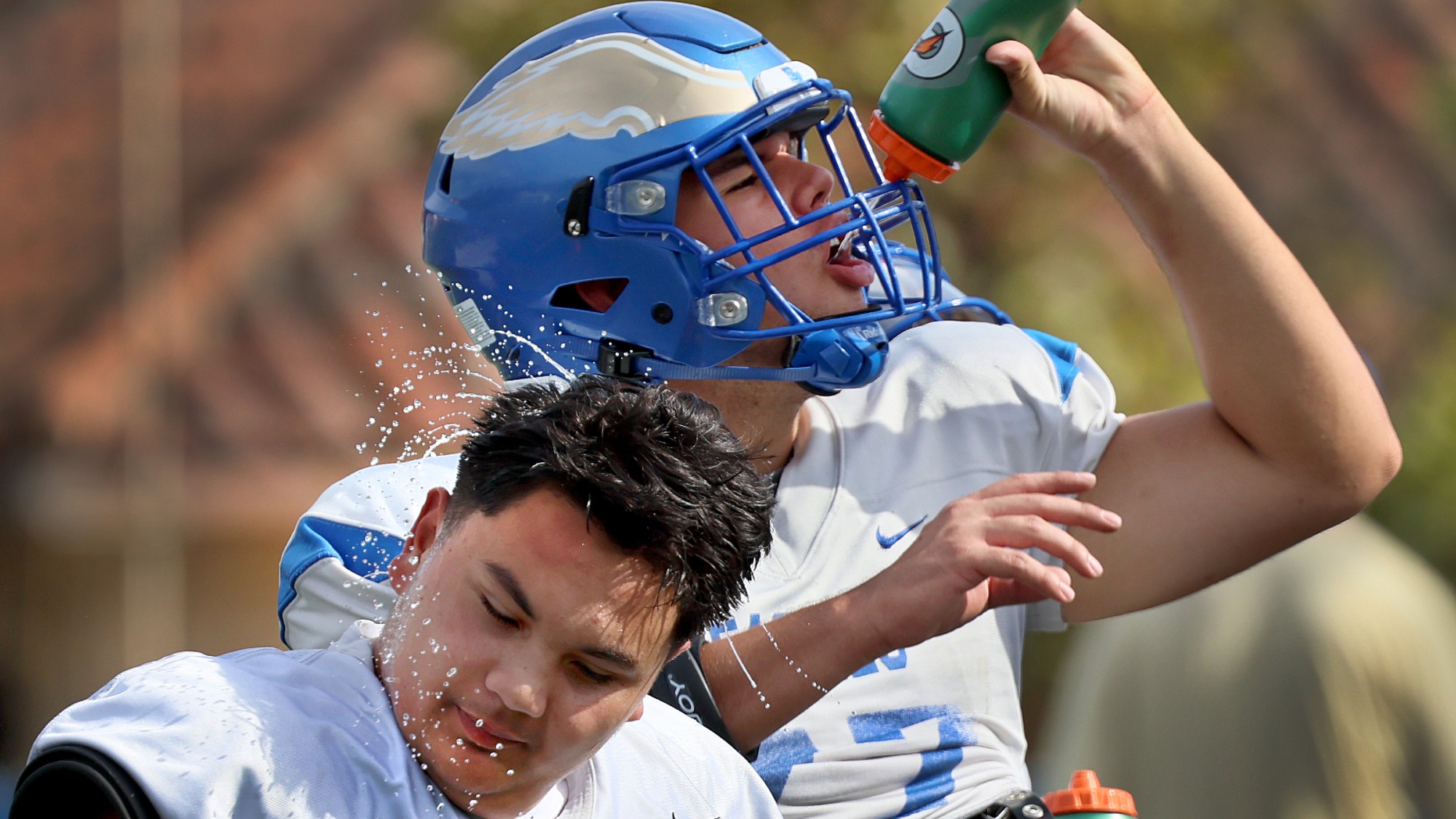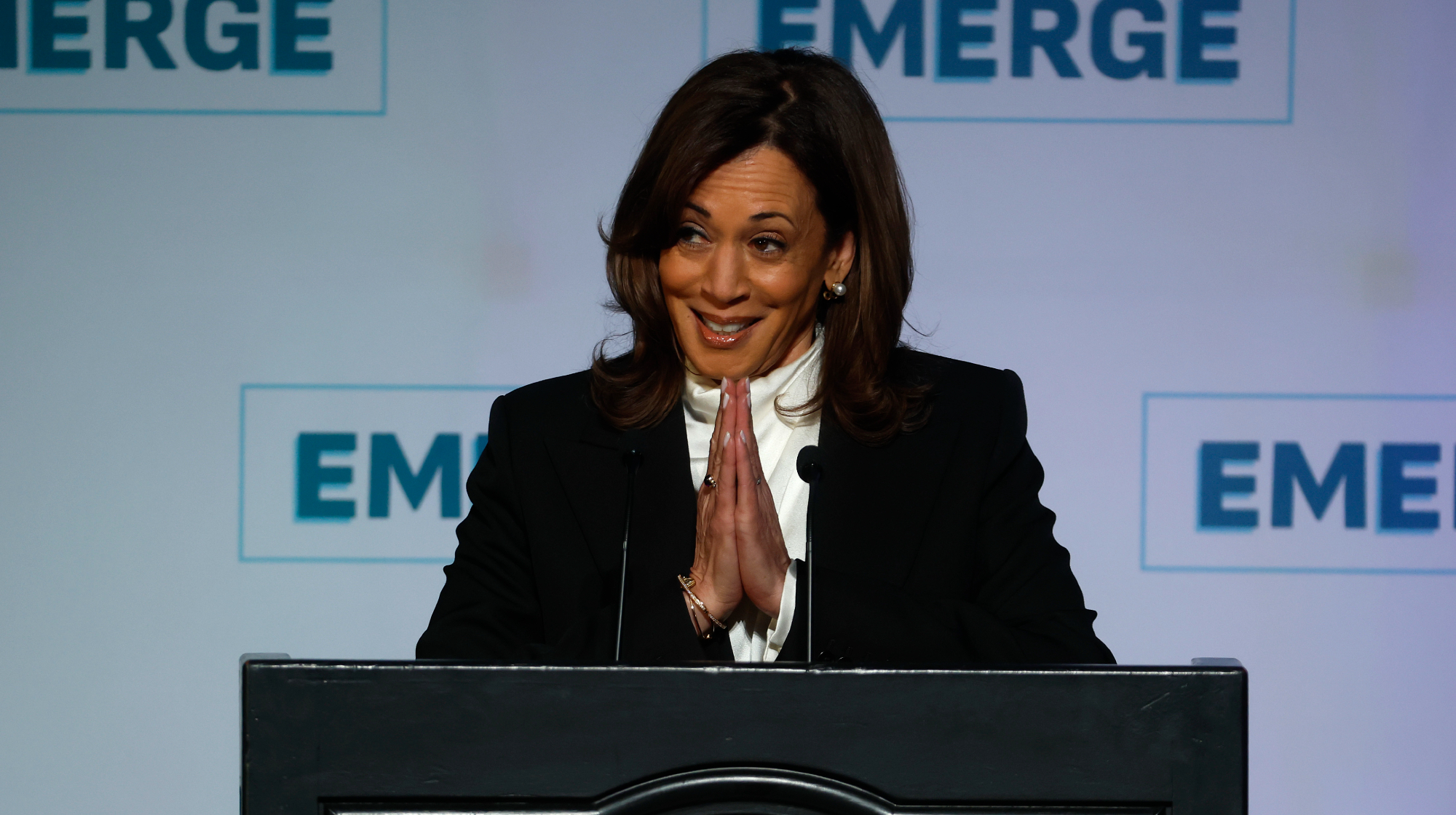The lessons we didn't learn from Kamala Harris
Almost every candidate in the race was a long shot


A free daily email with the biggest news stories of the day – and the best features from TheWeek.com
You are now subscribed
Your newsletter sign-up was successful
Early Tuesday afternoon the news broke that California Sen. Kamala Harris was suspending her 2020 presidential campaign. The candidate who earlier this year was considered by many observers as one of the favorites for the Democratic nomination won't even make it to the Iowa caucuses.
So what does Harris' exit tell us about the state of the Democratic Party and the 2020 election?
The real answer is basically nothing. And the same is true of all the other candidates who have ended their campaign so far.
The Week
Escape your echo chamber. Get the facts behind the news, plus analysis from multiple perspectives.

Sign up for The Week's Free Newsletters
From our morning news briefing to a weekly Good News Newsletter, get the best of The Week delivered directly to your inbox.
From our morning news briefing to a weekly Good News Newsletter, get the best of The Week delivered directly to your inbox.
Depending on who you count, 29 serious efforts were launched for the Democratic presidential nomination. The vast majority of these were politicians in good standing with reasonably successful track records. There are numerous senators, representatives, governors, and mayors. You could make a plausible case for almost all of them that with more favorable conditions they had the potential to be a top-tier contender, but the state of the race was mostly out of their control. Almost everyone started from a bad position.
The two exceptions were the popular and very well known former vice president, Joe Biden, and the 2016 runner-up who had an enormous grassroots donor base to draw on, Sen. Bernie Sanders. Biden solidly represents the more moderate wing of the party, and started the race with roughly 30 percent support. He has made no major mistakes and has mostly held on to that share. Sanders, in turn, has continued to represent the left wing of the party. He started the race with 20 percent support, and has also made no major mistakes which has let him hold on to that support.
In addition, polls show another roughly 10 percent of the primary electorate are people who won't really choose anyone until it is much closer to when they are going to actually vote.
This left 27 candidates to battle for just 40 percent of the primary electorate with few clear ideological divides to take advantage of. On a purely statistical level the vast majority of them were going to fail. It shouldn't surprise anyone that a candidate starting from a small minority of support with no obvious way to gain traction and competing against so many other skilled politicians failed. For any of them to break through at all required significant skill, great strategy, and a lot of luck. Either that or be worth billions of dollars so they can blanket the airwaves with self-funded ads to pick up a few percentage points of support.
A free daily email with the biggest news stories of the day – and the best features from TheWeek.com
We can't say voters rejected Harris because they were too liberal, since Sanders is polling well. We can't say it is because she is a woman, since a woman won the nomination last time and Sen. Elizabeth Warren is still polling well. We can't say she was rejected for being too moderate since Biden still leads nationally. Nor can we say they she was rejected for not being old enough or experienced enough, since Pete Buttigieg is doing reasonably well. It is definitely possible that Harris' race played a role, since the remaining front-runners are all white, but there isn't enough data to indicate if that was the decisive factor for her campaign.
Yes, Harris had a few clear missteps that other people will point to and a policy record that left her open to accusations of hypocrisy and fence-sitting, but that is missing the forest for the trees. The same could be said for virtually anyone. The fact is that for any of the numerous candidates outside the two original two front-runners, winning was going to be extremely difficult. It would require both a lot of luck and an incredibly well-executed strategy which could nearly predict the future. Harris — like Beto O'Rourke, Jay Inslee, Kristen Gillibrand, John Hickenlooper, Bill De Blasio, etc. — simply wasn't able to run a perfect campaign. But that doesn't really teach us much. Harris wasn't the first and won't be the last candidate with a truly impressive resume to drop out.
Want more essential commentary and analysis like this delivered straight to your inbox? Sign up for The Week's "Today's best articles" newsletter here.
Jon Walker is the author of After Legalization: Understanding the Future of Marijuana Policy. He is a freelance reporter and policy analyst that focuses on health care, drug policy, and politics.
-
 How the FCC’s ‘equal time’ rule works
How the FCC’s ‘equal time’ rule worksIn the Spotlight The law is at the heart of the Colbert-CBS conflict
-
 What is the endgame in the DHS shutdown?
What is the endgame in the DHS shutdown?Today’s Big Question Democrats want to rein in ICE’s immigration crackdown
-
 ‘Poor time management isn’t just an inconvenience’
‘Poor time management isn’t just an inconvenience’Instant Opinion Opinion, comment and editorials of the day
-
 The billionaires’ wealth tax: a catastrophe for California?
The billionaires’ wealth tax: a catastrophe for California?Talking Point Peter Thiel and Larry Page preparing to change state residency
-
 Bari Weiss’ ‘60 Minutes’ scandal is about more than one report
Bari Weiss’ ‘60 Minutes’ scandal is about more than one reportIN THE SPOTLIGHT By blocking an approved segment on a controversial prison holding US deportees in El Salvador, the editor-in-chief of CBS News has become the main story
-
 Has Zohran Mamdani shown the Democrats how to win again?
Has Zohran Mamdani shown the Democrats how to win again?Today’s Big Question New York City mayoral election touted as victory for left-wing populists but moderate centrist wins elsewhere present more complex path for Democratic Party
-
 Millions turn out for anti-Trump ‘No Kings’ rallies
Millions turn out for anti-Trump ‘No Kings’ ralliesSpeed Read An estimated 7 million people participated, 2 million more than at the first ‘No Kings’ protest in June
-
 Democrats: Harris and Biden’s blame game
Democrats: Harris and Biden’s blame gameFeature Kamala Harris’ new memoir reveals frustrations over Biden’s reelection bid and her time as vice president
-
 ‘We must empower young athletes with the knowledge to stay safe’
‘We must empower young athletes with the knowledge to stay safe’Instant Opinion Opinion, comment and editorials of the day
-
 Harris rules out run for California governor
Harris rules out run for California governorSpeed Read The 2024 Democratic presidential nominee ended months of speculation about her plans for the contest
-
 Ghislaine Maxwell: angling for a Trump pardon
Ghislaine Maxwell: angling for a Trump pardonTalking Point Convicted sex trafficker's testimony could shed new light on president's links to Jeffrey Epstein
